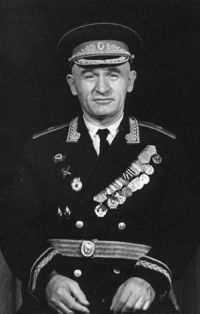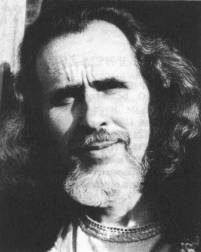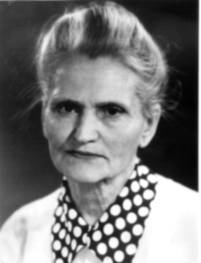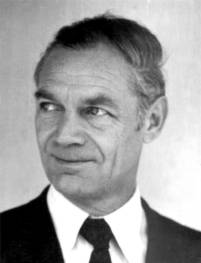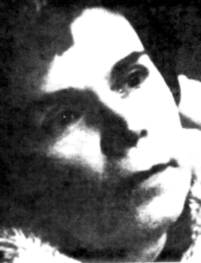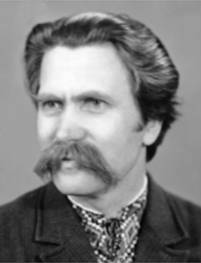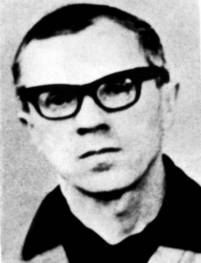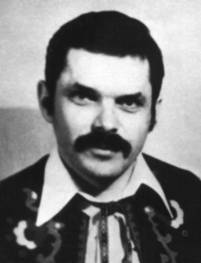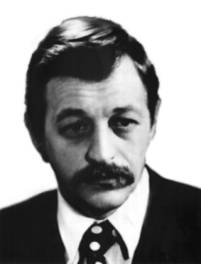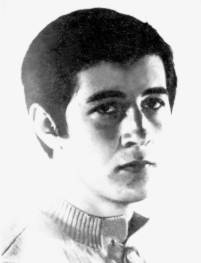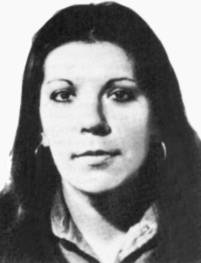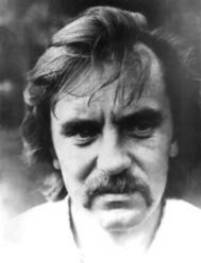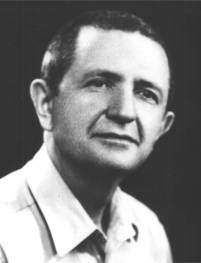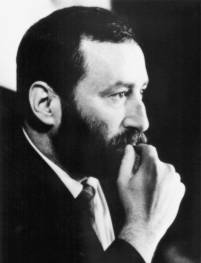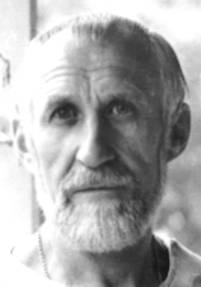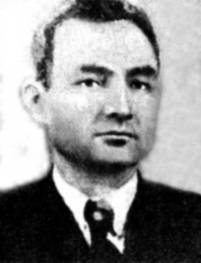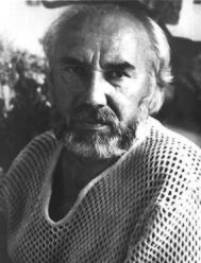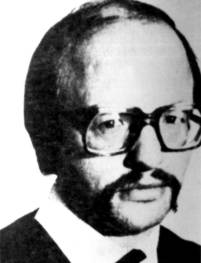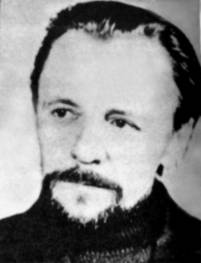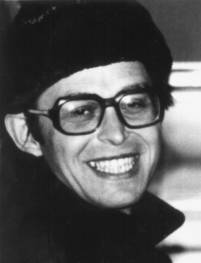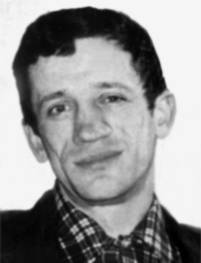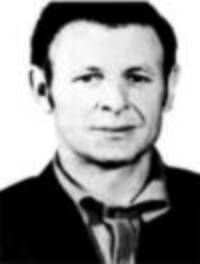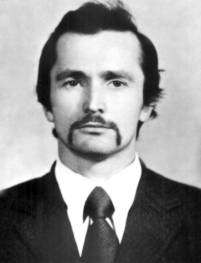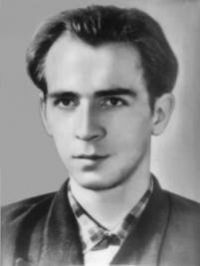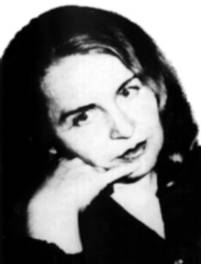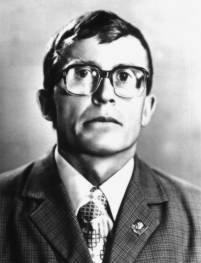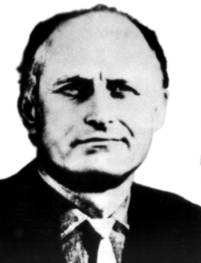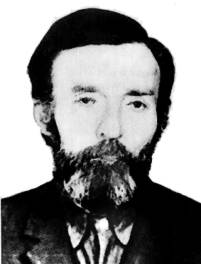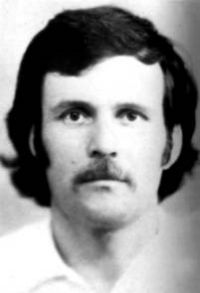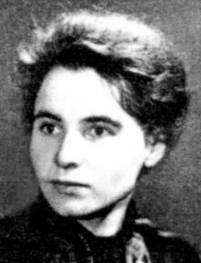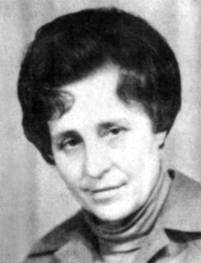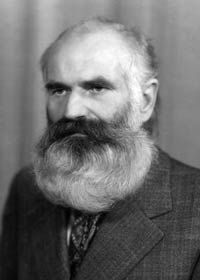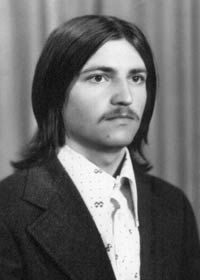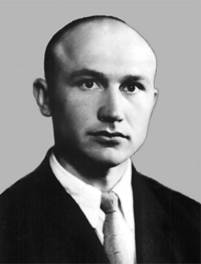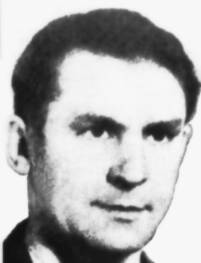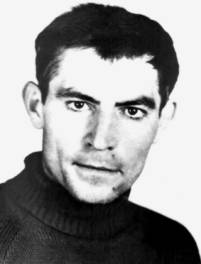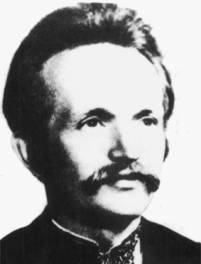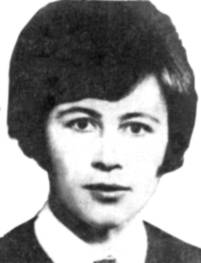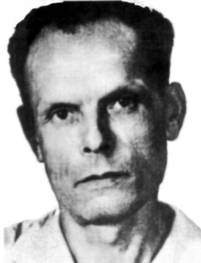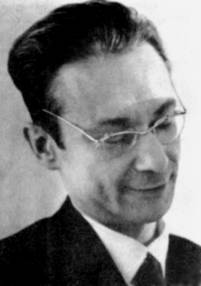After the “general pogrom” of 1972, virtually all active members of the resistance movement found themselves in labor camps. The old methods of fighting for cultural, national, and civil rights—through underground struggle, the dissemination of samvydav, and sociocultural actions—no longer met the demands of the time.
“The Sixtiers tried very hard to avoid any kind of organization; everything was done on a friendly basis. Later, during our trials, Prosecutor Makarenko would lament, ‘These were the great leaders of a small movement!’ And you know, he was right—the movement was indeed small, but the leaders were truly great. These people were capable of launching a major national liberation struggle. For that, a little more time was needed, a few more years. And from the KGB’s perspective, the strike was delivered at just the right time… they thought they would have peace from the Ukrainian movement for 10-15 years, but they were mistaken, because in 1976 the Ukrainian Helsinki Group appeared—completely unexpectedly for them.”[1]
The dissidents became convinced that the best means of fighting the totalitarian regime was through open human rights advocacy, based on the Soviet Union’s own legislation and the international human rights agreements to which it was a signatory. The signing of the Helsinki Accords provided both the impetus and the foundation for the revival of the Ukrainian dissident movement on a new footing.
Before delving into the history of the Helsinki movement in Ukraine, it is necessary to examine the global processes that created the basis for its activities.
In 1946, the UN Council established the Commission on Human Rights. In January 1946, at the beginning of its first session, the General Assembly considered a draft Declaration on Fundamental Human Rights and Freedoms and forwarded it to the Economic and Social Council for submission to the Commission on Human Rights as it developed the International Bill of Human Rights. The drafting process began in 1947 and was then passed to an official drafting committee, which included members of the Commission—representatives of eight states selected on a regional basis. The Commission worked on the draft declaration at its session from May 24 to June 15, 1948. There was not enough time for the Commission to consider the pact. Therefore, this declaration was submitted to the UN General Assembly at its session in Paris. On December 10, 1948, the Assembly adopted the Universal Declaration of Human Rights.
The Declaration consists of a Preamble and 30 articles that set forth fundamental rights and freedoms. In the preamble itself, the signatory countries pledged to respect human rights and freedoms.
“The General Assembly proclaims this Universal Declaration of Human Rights as a common standard of achievement for all peoples and all nations, to the end that every individual and every organ of society, keeping this Declaration constantly in mind, shall strive by teaching and education to promote respect for these rights and freedoms and by progressive measures, national and international, to secure their universal and effective recognition and observance, both among the peoples of Member States themselves and among the peoples of territories under their jurisdiction.” [2]
Article 2: “Everyone is entitled to all the rights and freedoms set forth in this Declaration, without distinction of… language, religion, political or other opinion, national or social origin…”[3]
Article 18: “Everyone has the right to freedom of thought, conscience and religion…”[4]
Article 19 (fundamental for the Helsinki movement): “Everyone has the right to freedom of opinion and expression; this right includes freedom to hold opinions without interference and to seek, receive and impart information and ideas through any media and regardless of frontiers.”[5][5]
Unfortunately, this was only a declaration, not a legally binding international treaty. It goes without saying that the Soviet Union signed the Universal Declaration for purely political reasons, and it had no impact on the human rights situation within the USSR. But this in no way diminishes the significance of the Declaration. It outlined the path that humanity should follow. This document became the basis for many other international treaties aimed at protecting human rights and freedoms.
In the latter half of the 1960s, the idea of holding an international conference on security issues in Europe emerged. On May 7, 1969, Finland agreed to host the conference. In December 1971, the Warsaw Pact countries accepted this proposal.
From November 22, 1972, to June 8, 1973, consultations were held in Helsinki, and the conference agenda was developed:
1. Questions relating to Security in Europe;
2. Co-operation in the Field of Economics, of Science and Technology and of the Environment;
3. Co-operation in Humanitarian and Other Fields;
4. Follow-up to the Conference.
It was decided to hold the conference in three stages: Helsinki, Geneva, Helsinki. The first stage took place from July 3 to 7, 1973. It was attended by ministers from 33 European states, the USA, and Canada. They presented their governments’ views on the problems of security and co-operation in Europe and on the future work of the conference.
The second stage of the conference began in Geneva on September 18, 1973. The main task of this stage was to draft the final documents. It lasted over two years and was the most intense. The USSR resisted the West’s attempts to compel it to respect human rights and change its internal system.
From July 30 to August 1, 1975, the third stage of the conference was held in Helsinki at the “Finlandia” Congress Palace. Here, the Final Act—the main document of the conference—was signed. The Declaration of Principles affirmed the basic principles of international relations:
· Sovereign equality, respect for the rights inherent in sovereignty;
· Refraining from the threat or use of force;
· Inviolability of frontiers;
· Territorial integrity of States, peaceful settlement of disputes;
· Non-intervention in internal affairs;
· Respect for human rights and fundamental freedoms, including the freedom of thought, conscience, religion or belief;
· Equal rights and self-determination of peoples;
· Co-operation among States;
· Fulfilment in good faith of obligations under international law.[6]
The Final Act addressed issues of disarmament, co-operation in the fields of economics, science and technology, the environment, and co-operation in humanitarian fields.
Speaking at the conference on July 31, the Chairman of the Presidium of the Supreme Soviet of the USSR, L. Brezhnev, said in particular: “The special political significance and moral force of the agreements reached at the conference lie in the fact that they will be sealed by the signatures of the highest leaders of the participating states. To give full effect to these agreements is our common, most important task. We proceed from the assumption that all countries represented at the conference will implement the agreements reached. As for the Soviet Union, it will act precisely in this way.”[7]
The full hypocrisy of such speeches becomes apparent when comparing the articles of the Final Act with the law enforcement practices in the Soviet Union after the agreement was signed, particularly according to the data from the Helsinki groups in the USSR, which will be presented in the following sections.
Article VII of Section 1—Respect for human rights and fundamental freedoms, including the freedom of thought, conscience, religion or belief—proclaims:
“The participating States will respect human rights and fundamental freedoms, including the freedom of thought, conscience, religion or belief, for all without distinction as to race, sex, language or religion.
They will promote and encourage the effective exercise of civil, political, economic, social, cultural and other rights and freedoms all of which derive from the inherent dignity of the human person and are essential for his free and full development.
Within this framework the participating States will recognize and respect the freedom of the individual to profess and practice, alone or in community with others, religion or belief acting in accordance with the dictates of his own conscience.
The participating States on whose territory national minorities exist will respect the right of persons belonging to such minorities to equality before the law, will afford them the full opportunity for the actual enjoyment of human rights and fundamental freedoms and will, in this manner, protect their legitimate interests in this sphere.
The participating States recognize the universal significance of human rights and fundamental freedoms, respect for which is an essential factor for the peace, justice and well-being necessary to ensure the development of friendly relations and co-operation among themselves as among all States.
They will constantly respect these rights and freedoms in their mutual relations and will endeavour jointly and separately, including in co-operation with the United Nations, to promote universal and effective respect for them.
They confirm the right of the individual to know and act upon his rights and duties in this field.
In the field of human rights and fundamental freedoms, the participating States will act in conformity with the purposes and principles of the Charter of the United Nations and with the Universal Declaration of Human Rights. They will also fulfil their obligations as set forth in the international declarations and agreements in this field, including inter alia the International Covenants on Human Rights, by which they may be bound.”[8][8]
The Final Act was published in the newspaper “Izvestia” on August 1, 1975. The Soviet government, confident in its strength and authority over the citizens and peoples of the USSR, did not expect any problems when it took this step. But it was mistaken, for soon so-called Helsinki groups (Groups to Promote the Implementation of the Helsinki Accords) were created in the Soviet Union—first the Moscow Helsinki Group (MHG), then the Ukrainian, Lithuanian, Georgian, and Armenian groups. This was an attempt to legally influence their own government.
It should be recalled that the first human rights associations emerged in the late 1960s. They grew out of collective petition campaigns for the defense of human rights. In 1969, the Initiative Group for the Defense of Human Rights in the USSR was formed, which from Ukraine included Kyiv resident Leonid Plyushch and Kharkiv resident Henrikh Altunian. In 1971, the first human rights association in Ukraine was established—the “Public Committee for the Defense of N. Strokata.” It included Leonid Tymchuk, Iryna Stasiv-Kalynets, Viacheslav Chornovil, Vasyl Stus, and a single Muscovite, Petro Yakir. Mykola Rudenko became actively involved in human rights activities from the early 1970s, collaborated closely with Moscow human rights activists, and became a member of the Soviet branch of Amnesty International, the world’s largest human rights organization.
The Ukrainian Helsinki Group was established on November 9, 1976, in Koncha-Zaspa near Kyiv, at the apartment of the poet and publicist Mykola Rudenko, who was elected head of the Group. The UHG was founded with the following members: Oles Berdnyk, a science fiction writer; Petro Hryhorenko (who became the group’s representative in Moscow); Levko Lukianenko; Oksana Meshko; Nina Strokata; Ivan Kandyba; Oleksiy Tykhy; Mykola Rudenko (head of the Group); Myroslav Marynovych; and Mykola Matusevych. This was the first composition of the group. The relentless repressions that befell its members, combined with the inheritance of the cause by new human rights defenders, led to a constant turnover in the UHG’s membership.
The UHG was not created as a branch of the Moscow Helsinki Group, but as an independent human rights association. The UHG and the MHG constantly collaborated. The UHG’s situation was more difficult because in Kyiv, as throughout Ukraine, there were no foreign journalists to whom information about human rights violations could be passed. They might appear only for a specific reason, but then they would be closely watched by Soviet special services. There were only three consulates in Kyiv, and all their employees were under strict KGB surveillance. Therefore, almost the entire flow of independent information from Ukraine went through Moscow human rights activists; it was through them that UHG documents were transmitted to the West.
The authorities’ reaction to the emergence of the UHG was lightning-fast. On the night of November 10, unknown individuals vandalized the apartment of the Group’s leader, poet Mykola Rudenko. The apartment windows were smashed with bricks. Group member Oksana Meshko, a former prisoner of Stalin’s camps and mother of political prisoner Oleksandr Serhiyenko, who was in Rudenko’s apartment at the time, was injured by one of the bricks. The police who were called refused to file a report.[9] The Moscow Helsinki Group also reported this incident, immediately appealing to the world: “We draw attention to the danger of using criminal methods against a Group whose creation and activities are in accordance with the spirit and letter of the Final Act and against which it is difficult to initiate legal prosecution. We ask the world community to speak out in defense of the Ukrainian Group and not to lose sight of it in the future.”[10][10] During the “founding meeting” at Rudenko’s apartment, the group signed the Declaration of the Ukrainian Public Group to Promote the Implementation of the Helsinki Accords—the UHG’s first and programmatic document. The epigraph to the Declaration was a quote from Article 19 of the Universal Declaration of Human Rights, indicating the group’s main course of action. Ukraine was not represented at the Helsinki Conference, a fact sadly noted at the beginning of the Declaration. “However, we take into account that under the Treaty of December 30, 1922, on the creation of the USSR, all international agreements signed by the government of the Soviet Union are also in effect on the territory of Ukraine. It follows that the Declaration of Human Rights, as well as the Declaration on Principles Guiding Relations between Participating States of the Helsinki Conference, also extend to the Ukrainian people.”[11][11] Based on the premise that the implementation of the Final Act’s articles (especially the humanitarian ones) cannot be ensured without the participation of the broad public of the signatory countries, the UHG aimed to:
1) Promote the familiarization of wide circles of the Ukrainian public with the Declaration of Human Rights. To strive for this international legal document to become fundamental in the relationship between the Individual and the State.
2) Proceeding from the conviction that peace among peoples cannot be ensured without free contacts between people, as well as without the free exchange of information and ideas, to actively promote the implementation of the humanitarian articles of the Final Act of the Conference on Security and Co-operation in Europe.
3) To demand that at all international conferences where the results of the implementation of the Helsinki Accords are to be discussed, Ukraine, as a sovereign European state and a member of the UN, be represented by a separate delegation.
4) For the purpose of free exchange of information and ideas, to seek the accreditation of foreign press representatives in Ukraine, the creation of independent press agencies, etc.”[12][12]
The UHG sought to, so to speak, enlighten the people about their rights and not only to enlighten but also to encourage them to exercise these rights. However, the main activity of the Helsinki groups, including the Ukrainian one, was the collection and dissemination of information: “The Group considers its main task to be informing the governments of the participating countries and the world public about the facts of violations in Ukraine of the Universal Declaration of Human Rights and the humanitarian articles adopted by the Helsinki Conference. To this end, the Group to Promote:
a) accepts written complaints about violations of Human Rights and does everything necessary to bring them to the attention of the governments that signed the Helsinki Accords, as well as the world public;
b) processes the collected information about the legal situation in Ukraine and, in accordance with Art. 19 of the Universal Declaration of Human Rights, disseminates it regardless of state borders;
c) studies the facts of Human Rights violations against Ukrainians living in other republics in order to give these facts wide publicity.”[13][13]
The Group members warned that the UHG was guided in its activities not by political, but only by humanitarian and legal motives. The Declaration focused on the arbitrary, bureaucratic interpretation of the Universal Declaration and the Helsinki Accords by the Soviet government and stated that the Group accepts these documents in their entirety, “without bureaucratic distortions.”[14][14]
Another document—an open letter from Mykola Rudenko to people of goodwill, which can also be considered programmatic—speaks of the difficult situation in Ukraine, of its inequality with Russia. Mykola Rudenko draws attention to the fact that Ukraine, represented in the UN as a sovereign state, was not represented in Helsinki. This letter emphasizes that the Group pays significant attention to the national question: “Our Group has no political goals; our task is exclusively humanitarian: to promote the implementation of the Helsinki Accords in the field of human rights. But we cannot bypass the national question: most Ukrainian political prisoners are convicted for fabricated or real nationalism.”[15][15] This direction of the UHG’s activity became its main focus.
The first UHG Memorandum is titled “The Influence of the European Conference on the Development of Legal Consciousness in Ukraine.” The first part of the Memorandum speaks about the principles of the UHG’s creation. As already noted, the UHG focused its attention on the national question in Ukraine. And the Group’s first memorandum is primarily dedicated to it. The second part argues that in Ukraine, since the beginning of Stalin’s dictatorship, a real genocide and ethnocide of the Ukrainian people had been taking place. The UHG mentions collectivization and the artificial famine, repressions and war, Moscow’s struggle against the UPA and Ukrainian culture. Secondly, the Group members reflect on the question of separation from Russia: “The national rights of Ukraine within the Union, as a result of the bureaucratic destruction of the principles of the Declaration on the Creation of the USSR, ceased to be a complete reality... For decades, it was hammered into the Ukrainian’s head that no national questions exist for him, that only sworn enemies of the Soviet government are capable of thinking about the separation of Ukraine from Russia.”[16][16] As it turns out from the Soviet Constitution, the desire to leave the USSR is not a crime, but a right of Ukraine. “The Criminal Code of the UkrSSR also nowhere states that agitation for separation from Russia is punishable by law.”[17][17] The Code spoke of something else—agitation and propaganda for the purpose of subverting or weakening the Soviet government (the infamous Article 62 of the Criminal Code of the UkrSSR).
The Group’s document relies on specific examples—the fate of Levko Lukianenko and Ivan Kandyba and many others who were captured by the ideas of national independence but had nothing against the Soviet government*. Thirdly, the UHG proves that the Soviet government does not comply with international agreements and violates its own laws in internal affairs. “In fact, the activity of the USSR government contradicts the laws of the USSR... It contradicts the fact that these laws should be understood not as they are written, but as the party leadership demands. In fact, the law in the USSR is a trap for naive people: it provokes, but does not protect from arbitrariness.”[18][18]
The third part of this memorandum provides specific examples of illegal actions by the KGB and the Soviet government. “We could cite dozens of examples where Ukrainian nationalism—real or imagined—leads to inhuman sentences. This clearly shows that it is not the Soviet government that judges (its laws do not allow judging for defensive nationalism)—it is judged by rabid great-power chauvinists. It is Force that judges, not Law.”[19][19]
The fourth part describes the human rights situation in Ukraine after the signing of the Helsinki Accords. Specific information is provided about Ukrainian political prisoners serving sentences in concentration camps and prisons in Mordovia, Perm, and Vladimir regions. This list is continued by those in exile. It then discusses psychiatric hospitals and reports other human rights violations in Ukraine with a request for an immediate reaction. At the end of the document, conclusions are drawn. “They are very disappointing: more than a year has passed since the Helsinki Conference, and it has brought no relief to the Ukrainian people... In fact, today all life in the country is controlled by the KGB... Meanwhile, former political prisoners are returning—returning unbroken, hardened, full of determination to continue the struggle for human rights.”[20][20] It should be recalled that this memorandum was signed on December 6, 1976.
Here some conclusions can be drawn. At the very beginning of its activity, the UHG focused mainly on the national question. The document, for example, says nothing about human rights violations in other spheres of life: socio-economic, religious, etc. And the examples given were exclusively about repressions against representatives of the national movement.
In December 1976, the first searches of UHG members began. On the night of December 23-24, 1976, searches were conducted at the apartments of Group members Mykola Rudenko (Kyiv), Oles Berdnyk (Kyiv), Levko Lukianenko (Chernihiv), Oleksa Tykhy (Donbas), and Ivan Kandyba (Lviv). During the searches, all of the Group’s documents, literary and epistolary archives, cameras, typewriters, etc., were confiscated. The KGB used tactics such as planting illegal items: American dollars were found at Mykola Rudenko’s, a rifle at Oleksiy Tykhy’s, and pornographic postcards at Oleksandr Berdnyk’s.
Mykola Rudenko, in a Statement addressed to the Moscow Prosecutor who signed the search warrants, protested against the illegal searches and provocations. “Neither formally nor in substance does the Moscow city prosecutor’s office have the right to conduct searches on the territory of Ukraine…”[21] the document stated.
Between January and April 1977, the UHG issued 10 memoranda. The second UHG memorandum is entirely dedicated to the issue of Ukraine’s participation in the 1977 Belgrade Conferences. It directly raises the question of Ukraine’s participation in these Conferences. “How could it be that a highly developed European country with a population of 50 million and a territory larger than any Western European state was not invited to the forum of nations in Helsinki? ... Why did none of the participants of the Helsinki Conference notice its absence? Is Ukraine not an equal member of the UN?”[22] The UHG members find the answers to these questions in the imperial nature of the USSR and in the West’s perception of the Soviet Union as a single Russia. The authors of the memorandum note that from the perspective of international law, the USSR should be equated not with the USA, but with the European Community, insisting on the de jure sovereignty of the Union’s republics versus the de facto imperial reality. “There is no doubt: in a civilized state, this cannot last long. Such experiments can only be carried out on intimidated, illiterate people, and their numbers in the USSR are steadily decreasing. That is why we are convinced that Law will finally overcome the imperialist tradition,”[23] the authors asserted.
At a time when the Soviet people were steeped in ideology, deprived of their own history, and living in a world fabricated by the regime, the members of the UHG perceived Soviet reality from a realistic historical standpoint. It was no secret to them that the USSR was de facto a continuation of the Russian Empire and that a totalitarian empire could not exist for long.
The third UHG Memorandum tells of the persecution of the Greek-Catholic public figure and dissident, Yosyp Terelia.
The openness and legality of the Group made the repressions against its members absurd from a legal point of view. But the UHG members clearly understood that repressions awaited them soon, as the USSR was a hypocritical totalitarian empire that did not fulfill its international obligations, violated its own internal laws, and ruled only through violence.
When the entry of Marynovych and Matusevych into the UHG was announced on Western radio, a psychological attack began on them. Myroslav Marynovych recalls how a car would wait for him at his building’s entrance every winter morning. When he left for work, it was still dark, and the car, with its headlights on, would slowly follow him, as if hinting that he could be arrested at any moment.[24]
An interesting incident occurred in March 1977. To prevent gatherings near the Shevchenko monument, the authorities decided to keep the celebration under control and began to organize Shevchenko evenings themselves. At one such evening in the Kyiv Philharmonic, as usual, they talked about Shevchenko—how Lenin loved him, read his diary in Russian. Not a single poem was read. Outraged by this course of events, Myroslav Marynovych went on stage and addressed the audience: “Lenin really loved Shevchenko’s ‘Testament.’ So let’s sing it!” Mykola Matusevych shouted to the hall: “People, aren’t you ashamed?” The hall: “We are ashamed!” Then a KGB agent jumped out and called for everyone to disperse. But no one listened to him anymore—everyone began to sing “The Testament.” Then the administration turned off the lights. It didn’t help. The lights were turned on again. The entire hall was singing. Afterwards, everyone approached Myroslav and Mykola and congratulated them. Everyone left the hall, with Marynovych and Matusevych being the last to leave. The entire street was filled with people. They stood in a semicircle, and in the center—a “Volga”—the KGB had arrived. The people surrounded Myroslav and Mykola and led them out. Everyone went to the Shevchenko monument and sang “The Testament” again. No one interfered, but later, because of this demonstration, many people were fired from their jobs.[25]
Pressure on UHG members began immediately. Many of the human rights defenders were fired from their jobs and joined the ranks of “stokers with higher education.” A vivid example is the story of Myroslav Marynovych. At the time the UHG was created, he worked as a technical editor at the Kyiv publishing house “Tekhnika.” Before the New Year, the director called him in and offered him a promotion and a new position. But for this, two applications were needed—one for dismissal and one for promotion. Marynovych understood what was happening but wrote the application for dismissal. Needless to say, the promotion was never mentioned. A month later, the director called Marynovych in, gave him a bonus, and thanked him that everything went without incident. For several months, Marynovych could not find a job—the KGB forbade anyone from hiring him. In April, he managed to find a job pasting up posters, but on April 23, the first day he was supposed to work, Myroslav Marynovych was arrested.[26]
Repressions against the Group began with the arrests of Mykola Rudenko and Oleksiy Tykhy on February 5. Marynovych and Matusevych were also detained, but they were released at that time. Oles Berdnyk became the head of the UHG. The arrest of two UHG members could not intimidate the others. The Group continued its active human rights work.
The UHG’s reaction to the arrest of Rudenko and Tykhy was the fourth memorandum—“On New Repressions in Ukraine against the (Helsinki) Group.” It presents the facts of arrests and searches and draws a correct conclusion: “the arrest of the Group’s leader M. Rudenko and member O. Tykhy, as well as the searches of the apartments of the remaining members, are only the beginning of a repressive whirlwind that the KGB intends to unleash on the Groups to Promote in the USSR.”[27][27]
The document “Ukraine in the Summer of 1977”—the fifth memorandum of the UHG—also seems interesting. Its author was the new head of the UHG, Oles Berdnyk. The text of the memorandum was not coordinated with other members of the UHG. This document was written during a time of repression against the Group’s members—searches, arrests. “What are the initiators of the aforementioned lawlessness and arbitrariness afraid of?” asks the author. “The courage and frankness with which the Group has come forward shows that its members are not hostile to the Soviets, nor to the revolutionary ideals of the New World, nor to the humane ideals of Socialism and Communism... We are not forming an underground—and this indicates that we do not intend to overthrow the Soviet System... There are not many of us, but we affirm that the will of evolution is with us! Therefore, again and again, patiently, friendly, with hope, we appeal to the ruling circles of the country: stop the repressions against honest people who think differently from the dogmatists and the orthodox! Such people are the hope of the future!”[28] The fifth memorandum was intended for the participating countries of the Belgrade conference.
The first part of the memorandum is dedicated to statehood. “All the historical cataclysms that the Ukrainian people have experienced in recent centuries were born of the idea of statehood.
The will of the Nation strives for independence, for sovereignty, for building its own, independent life, while the surrounding imperialist predators do everything in their power to prevent such sovereignty and to preserve the chosen victim-nation in the form of raw material—food, spiritual, energy, and any other.”[29][29]
The author has no doubt that the formal sovereignty of Ukraine in the USSR, like that of other republics, is a fiction: “Let’s not play hide-and-seek: our statehood is just a paper mirage.”[30][30] Further in the Memorandum, “several firmly thought-out provisions regarding statehood” are proclaimed:
· Not Man for the state, but the state for Man…
· We are for a Union, which is called the Union of Soviet Socialist Republics, and which will later transform into a Brotherhood of Free Peoples of the Earth. But each nation must be a free factor in this union, an independent creative spirit…
· …complete sovereignty of creative expression in all spheres of spiritual and economic life…[31]
The second part examines the question of the individual and their rights. The USSR signed the Universal Declaration, the Helsinki Accords, and many other documents that affirmed human rights. But it does not fulfill its obligations. Why? The author of the memorandum sees the main reason for this in the fact that “rights are declared by a bureaucratic structure, so to speak, hung on a wall, and do not flow from the legal consciousness of the person.”[32][32] Analyzing the real situation, the author, on behalf of the UHG, demands:
· “Free exit from the homeland and return.
· Free dissemination of one’s ideas and acquaintance with the ideas of other people.
· Free creation of creative, artistic, philosophical, scientific associations and their dissolution.
· Free participation in shaping the consciousness of the people and in the affairs of the state.
· Free activity aimed at the universal unification of the Spirit of Humanity on the principles of Brotherhood, Love, and Reason.”[33][33]
· “Ukraine of 1977 proposes:
· To release all political prisoners and to liquidate the corresponding articles in the Criminal Codes of the Union and the Republics.
· To open the country’s borders for free exit and entry.
· To open the channels for free information—scientific, artistic, literary, personal, and any other that does not violate Human Rights…
· To permanently abolish censorship as a relict institution of feudalism, transferring to publishing houses the right not to allow militaristic and pornographic products onto the book or other markets.
· To abolish the death penalty as a manifestation of the criminality of the state structure. The state cannot create life, it has no right to take it away.
· To condemn at the level of the United Nations the very idea of murder, and therefore, to brand any state or person that seeks to carry out its intentions with the help of murder (war)—as enemies of Humanity, who have no right to enter the Common Future.
· In the coming years, to liquidate armies (except for internal forces of order) and create a Planetary Brotherhood of Peoples on the basis of the United Nations.
· To jointly solve economic, ecological, demographic, and cosmological problems.”[34][34]
The ideas are undoubtedly progressive, but from specific human rights demands, the author transitions to naive romantic dreams. His profession as a science fiction writer likely plays a role here.
The UHG summarized some of its activities in the seventh memorandum—“The Ukrainian Group to Promote—The First Four Months.” This document reads like a substantive report of a non-governmental human rights organization. In it, the Group proves the relevance of its activities, describes and analyzes the work carried out, and clearly demonstrates that the creation of the UHG did not go unnoticed: “Hundreds of letters and complaints from all over Ukraine began to arrive to the Group’s members when people heard about its creation. This alone testifies to the scale of lawlessness in Ukraine.”[35][35] And the UHG members confirm their words with a series of facts about new repressions.
In the eighth memorandum of March 15, 1977, the UHG stands up for the family of Vasyl Lisovyi, a well-known Sixtier philosopher who ended up in Mordovian camps for his beliefs. The Group draws “the attention of the Washington Committee to Promote the Implementation of the Helsinki Accords in Ukraine and of the participating countries to the difficult, lawless situation of the wife of this political prisoner, Vira Lisova, and her two children.”[36][36]
The eleventh memorandum (March 20, 1977) draws attention to the critical situation of Nadiya Svitlychna, who had served her sentence (4 years in a strict-regime camp) for so-called “anti-Soviet activity” (Art. 62 of the Criminal Code of the UkrSSR) and could neither register her residence nor find a job. Her seven-year-old son, Yarema, was also deregistered from Kyiv, thus depriving him of the right to education and medical care. The police tried to hold Nadiya Svitlychna accountable for malicious evasion of residence registration, while simultaneously denying her it. At the end, the Group appeals: “We call on the governments of the countries participating in the Helsinki Conference to demand an explanation from the USSR government regarding the gross violation of the Final Act of this Conference.
We call on all Soviet and international organizations, all honest people in the USSR and abroad to speak out in defense of the Victim of administrative arbitrariness—Nadiya Svitlychna.”[37][37]
On April 23, 1977, Myroslav Marynovych and Mykola Matusevych were arrested. In their defense, the UHG submitted a Statement to the Presidium of the Supreme Soviet of the UkrSSR regarding the arrest of members of the Ukrainian group to promote.
Several times, the Group appealed to the world community, to the countries that signed the Final Act, and to the governments of the UkrSSR and the USSR, proving that human rights were being brutally violated in Ukraine and throughout the Union.
Of the participating countries, only the Americans responded to the UHG’s calls, demanding at the Belgrade Conference that the USSR comply with the humanitarian articles of the Final Act. But their efforts were not enough. The repressions against the Helsinki members, temporarily suspended during this Conference, were resumed after its conclusion.
In a letter to the governments of the UkrSSR, the USSR, and the participating countries of the Helsinki Accords, the Group provides new and new facts of human rights violations. For example, a Statement from May 1977 reports another fact of human rights violation, describing the terrible situation of Bohdan Chuyko. An invalid of the second group, he was sent into exile after 15 years of imprisonment. Due to his inability to work, he was left without means of subsistence. This was a violation of the law, as the UHG members noted, since it is forbidden to apply such a measure of punishment as exile to disabled persons (Art. 79 of the Corrective Labor Code of the RSFSR).[38]
Another fact that the UHG brought to the attention of the world community was the critical condition of Oleksandr Serhiyenko, the son of Oksana Meshko, who, suffering from tuberculosis and other diseases, was in prison without proper medical care, which led to the progression of the disease, threatening death.[39] And such facts were not isolated—this was the common practice of the Soviet authorities.
As already mentioned, after the arrest of Mykola Rudenko, the new head of the UHG became Oles Berdnyk, a well-known science fiction writer. He appealed to US President J. Carter, the International PEN Club (New York), and the First Secretary of the CPU V. Shcherbytsky, trying to leave the USSR and even went on a hunger strike. He also went on a hunger strike over Rudenko’s arrest. Many human rights activists requested permission to leave, but the KGB itself decided who could go abroad, who would be under surveillance, and who would go to prison.
The second document that summarized the human rights activities of the Helsinki groups in the USSR, and in particular the UHG, was the joint document of the MHG and UHG, “New Repressions and a New Stage of the Human Rights Movement in the USSR,” written at the end of August 1977. It has five parts:
1) How did the Group to Promote the Implementation of the Helsinki Accords in the USSR arise?
2) What did and do the Groups to Promote the Implementation of the Helsinki Accords do?
3) How do the defenders of rights in the USSR pay for their humane activities?
4) There was no trial—there was a reprisal;
5) Preparation for mass repressions.
The first part is introductory; it analyzes the reasons and conditions for the creation of the Helsinki groups in the USSR, the human rights situation, etc.
“Long before the Helsinki Accords, the USSR adopted the Universal Declaration of Human Rights and ratified ten international conventions and two international covenants: 1) on Economic, Social and Cultural Rights and 2) on Civil and Political Rights. However, none of these international legal documents were in effect in the country, and the people knew almost nothing about them.
Fearing that the same fate—oblivion—would befall the Final Act, a group of Soviet citizens decided... to create a Group to Promote the Implementation of the Helsinki Accords in the USSR…”[40] Then the document describes the creation of other Helsinki groups in the national republics.
The second part is dedicated to an analysis of the groups’ activities and working conditions. The third and fourth parts describe the repressions against the members of the Helsinki groups. In particular, it tells about the trial of Mykola Rudenko and Oleksiy Tykhy. It also analyzes the reasons for the start of new repressions against dissidents. “…the KGB is searching for the materials we have collected precisely to prevent their disclosure…
The main goal of the increasingly frequent searches, interrogations, detentions, and falsified cases in recent years, directed against members of the Helsinki Group and people associated with them, is to find where the materials they have collected on human rights violations are and to intercept them before they leave the USSR.”[41][41]
The fifth part is a general assessment of the human rights situation in the USSR. The human rights defenders ask themselves what recent events (the trial of Rudenko and Tykhy, the arrests and persecution of others) testify to, and answer: it testifies “to a dual process: 1) the growth of oppositional sentiments within the Soviet Union and 2) the growth of fear in the authorities of these sentiments and an ever-strengthening tendency to resort to the tried-and-true Stalinist methods of reprisal.”[42][42]
The members of the Helsinki groups also touch upon the question of whether there is an opposition in the USSR. “Yes, there is. But only a potential one. To become a political opposition, a political program and a political organization are needed. There is no such thing in the Soviet Union.”[43][43] One can fully agree with this, as the KGB persecuted even for the idea of creating such organizations. The human rights defenders also state that they are not and do not want to be a political opposition. The human rights movement is a moral opposition.[44]
On October 14, 1977, the Group sent a petition to the Council of Ministers of the UkrSSR for registration based on the Constitution of the USSR: Art. 39 “Citizens of the USSR enjoy the full range of social, economic, and personal rights and freedoms…” and Art. 51 “…citizens of the USSR have the right to associate in public organizations…” It is clear that these attempts were futile.
With the arrests of the Group’s leader Rudenko, as well as Oleksiy Tykhy, and then Myroslav Marynovych and Mykola Matusevych, its work was not properly organized. One of the reasons for this was the problem of communication between the Group’s members. Increasingly, statements, letters, etc., were signed not by the entire Group, but by two or three of its members (a letter from Oksana Meshko to the Belgrade Conference of June 3, 1977, an appeal by Oksana Meshko and Zvenyslava Vivchar in the case of Oleksandr Serhiyenko, etc.), and sometimes on their own behalf (Statement by Levko Lukianenko to the Presidium of the Supreme Soviet of the USSR of October 24, 1977, etc.). Many appeals were in defense of repressed UHG members. Mykola Rudenko’s wife, Raisa Rudenko, wrote to L. Brezhnev, to Amnesty International, and to the participating countries of the Belgrade Conference. But all the attempts of the human rights defenders and relatives to help their relatives, colleagues, and friends, of course, were unsuccessful. On July 1, 1977, the Donetsk Regional Court sentenced Mykola Rudenko under Article 62, Part 1 of the Criminal Code of the UkrSSR and Article 70, Part 1 of the Criminal Code of the RSFSR to 7 years in labor camps and 5 years of exile, and Oleksa Tykhy—under Articles 62, Part 2 and 222, Part 1 of the Criminal Code of the UkrSSR to 10 years in labor camps and 5 years of exile.
At the trial, Mykola Rudenko delivered a brilliant “final statement.” It would be appropriate to cite a few quotes from the beginning of this speech:
“Citizen judges!
Today, the Word stands before the court. Do you remember? ‘In the beginning was the Word, and the Word was with God, and the Word was God. All things were made through Him, and without Him nothing was made that was made’…
No matter how much we deny idealism, the truth remains: man appeared on Earth when the Word appeared on the globe. No Word—no man…
…The Word found itself in Man. It, the Word, is the instrument of the Universe itself. This is the Logos, that is, the knowledge of the Universe about itself. The Universe does not just exist; it must know how and for what it lives. It lives in order to think. It comprehends itself with the help of the Word. It comprehends itself in Man…
…From this it follows that you, citizen judges, have to judge the Universe. No more, no less! You have to judge it for having settled in Man with its Word.
This is exactly what was meant when philosophers and lawyers worked on the text of the Universal Declaration of Human Rights. The Universe has no limits. That is, the word of man should also not be limited. It should flow freely across the borders of hearts, souls, states—otherwise it will cease to be the Word…
…The Word is subject to self-destruction—it is unable to penetrate the physical shell of Man to fulfill its purpose. Thus, a person who, out of fear or for another reason, freezes the Word within themselves, is not truly living…
…Our activity is the expression of our convictions. Our activity is the Word. And nothing else! Such activity has a very simple name: to be Human…”[45]
The activity of the UHG was a new stage in the life of Soviet society. For the first time, the country’s public spoke openly to the USSR government, demanding compliance with the state’s laws and the international documents it had signed. The Soviet authorities, even with the help of their entire powerful repressive machine, could not silence this voice for more than five years. The peoples of the state, in the persons of their best representatives, openly rose up against the illegal and unlawful actions of the authorities, and the world community became convinced that the USSR was ruled by a regime that could not be trusted in anything. This was another step towards the destruction of totalitarianism in the USSR.
On December 12, 1977, Levko Lukianenko was arrested in Chernihiv. Despite the repressions, the UHG continued to function. It was replenished with new members. The Baptist Petro Vins joined it back in February 1977. Olha Heiko-Matusevych joined in May of the same year, shortly after the arrest of her husband, Mykola Matusevych. Vitaliy Kalynychenko and Vasyl Striltsiv, former political prisoners, joined the UHG in October 1977. That same month, while still in exile, the brilliant Ukrainian poet and political prisoner Vasyl Stus agreed in correspondence to become a member of the UHG.
In 1977, Leonid Plyushch became the foreign representative of the UHG. After forced “treatment” in the Dnipropetrovsk special psychiatric hospital, he was expelled from the USSR in 1976. Since then, he lived in Paris. On November 30, 1977, Petro Hryhorenko left for treatment in the USA for six months. However, he was not allowed to return—on February 13, 1978, he was stripped of his Soviet citizenship. Thus, the foreign representation of the UHG was opened: in the USA—Petro Hryhorenko, in France—Leonid Plyushch.
In March 1978, Myroslav Marynovych and Mykola Matusevych were sentenced to 7 years in labor camps and 5 years of exile under Article 62-1 of the Criminal Code of the UkrSSR and 70-1 of the Criminal Code of the RSFSR. In June of the same year, Levko Lukianenko was sentenced under the same Article 62 of the Criminal Code of the UkrSSR, but Part 2, as a particularly dangerous recidivist, to 10 years of imprisonment and 5 years of exile. All the convicted human rights defenders did not renounce their membership and continued their activities in confinement. Thus, the UHG already existed in three “dimensions”: at liberty—abroad, in the “small zone”—in prisons and camps, and in the “great zone”—on the expanses of the homeland under the close surveillance of the KGB. Communication between these dimensions in a closed society was very difficult—the Soviet special services tried to control everything. However, information seeped out from behind bars, was collected and processed by UHG members, and taken to Moscow, and from there, through foreign correspondents, it reached the West.
From 1978, the UHG adjusted its tactics. The Group, as far as possible, monitored human rights violations in Ukraine, places of deprivation of liberty, etc., and instead of memoranda, began to issue an “Informational Bulletin,” in which it actually published the results of this monitoring, reporting on repressions, the condition of political prisoners, etc. Four issues were released during the year.
The first issue of the “Informational Bulletin” was released in February 1978. A year after joining the UHG, in February 1978, Petro Vins was arrested and soon sentenced to 1 year of imprisonment under Article 214 of the Criminal Code of the UkrSSR (“for a parasitic lifestyle”). That same month, student Vasyl Sichko joined the group. His father, an old underground fighter and political prisoner, Petro Sichko, became a member of the UHG after his son, in April 1978. In general, 1978 proved to be no less fruitful for new members than 1977—in October, Volodymyr Malynkovych became a member of the UHG. Vasyl Ovsienko, who had just returned from imprisonment, joined the Group in November. That same month, the historian and poet Mykhailo Melnyk joined its ranks.
By 1978, the UHG had defined its ideological and organizational position. After another well-known dissident-political prisoner, Yuriy Lytvyn, joined it in June 1978, the UHG released two samvydav articles, “The Human Rights Movement against the Backdrop of the National Struggles of the Ukrainian People” and “Our Tasks.” The latter article, which was prepared in the summer of 1978, can be considered programmatic. Its author was Mykhailo Horyn, who did not declare himself a member of the UHG but was actively involved in preparing documents from the very beginning. The article clearly formulates the interdependence of human rights in Ukraine and the national rights of the Ukrainian people:
“…anyone who thinks about human rights in Ukraine encounters the problem of the national rights of the Ukrainian people. National rights have become a significant part of the universal human rights of a nation that seeks to defend itself under the sun.
It was from the principles of the unity of universal human and national rights of Ukrainian citizens that the Ukrainian Group to Promote the Implementation of the Helsinki Accords proceeded.”[46][46]
The article once again clarified the main tasks and directions of the UHG’s activity:
“The Ukrainian Group to Promote the Implementation of the Helsinki Accords will continue to inform the Ukrainian and world public about the facts of violations of:
· the national rights of Ukrainian citizens;
· the national rights of representatives of other peoples inhabiting Ukraine.
· religious rights; rights to freedom of thought, speech, and dissemination of information;
· rights to education, work, pension provision, regardless of political views and religious convictions;
· rights to free choice of place of residence;
· rights to an open review of all court cases, including political ones;
· rights defined by the status of political prisoners in places of confinement;
· rights that protect the dignity, health, and life of political prisoners in concentration camps and prisons;
· rights to fight against the use of psychiatric science for political purposes.”[47][47]
By this, the group formally expanded its range of interests, but Ukrainian national rights remained a priority for the UHG. The article “Our Tasks” was included in No. 4 of the “Informational Bulletin,” which was published in November 1978.
Another article, “The Human Rights Movement against the Backdrop of the National Struggles of the Ukrainian People,” also discusses the national rights of the Ukrainian people and their inseparability from human rights. Despite the repressions, the document ends optimistically, even for our time:
“The future belongs to the human rights movement. The issues of human rights are both relevant and necessary. And people will win these rights.”[48][48]
This article was also published in No. 4 of the bulletin and was also published in English by the Helsinki Commission of the US Congress.
The UHG’s positions are also clearly stated in the appeal of November 7–December 15, 1978, to the UN Committee on the Defense of Human Rights and Freedoms, to the governments and parliaments of the states that signed the Helsinki Accords, to all democrats of the world, and to the public of all countries. The appeal cited examples of persecution of group members and for the first time emphasized the refusal to recognize the legitimacy of the authorities’ actions against the UHG: “…we are certain that the Soviet judicial procedure is an empty formality, where legal defense is an equally empty formality.
Considering all this, we refuse any participation in investigative and judicial processes, viewing these bodies not as judicial, but as purely punitive, that is, bodies not of justice, but of reprisal. This is precisely why we cannot trust them to administer true justice. That is why we will be forced to declare our boycott of the punitive policy of the CPSU at the upcoming trials.”[49][49]
And in February 1979, dissidents Sviatoslav Karavanskyi, Oksana Popovych, Bohdan Rebryk, Danylo Shumuk, and Yuriy Shukhevych, who were in confinement, priest Vasyl Romaniuk, and Stefaniya Shabatura, Viacheslav Chornovil, and Iryna Senyk, who were in exile, became members of the UHG.
The foreign representation was also replenished with new members: on October 12, 1978, Nadiya Svitlychna first went to Rome, where she was received by Pope Paul VI, and the next month she arrived in the USA and became a foreign representative of the UHG.
Repressions by the authorities extended not only to the direct members of the UHG but also to undeclared members. For instance, on December 8, 1978, Yosyf Zisels was arrested, and on April 5, 1979, he was sentenced to 3 years of imprisonment in a reinforced-regime camp under Article 187-1 of the Criminal Code of the UkrSSR.
Heorhiy Kasyanov believes: “The peak of the confrontation between Ukrainian human rights defenders and the Soviet authorities occurred in 1979.”[50][50] The KGB used such methods of fighting dissidents as intimidation, beatings, planting illegal items during searches, and fabricating purely criminal cases. Countless examples can be cited. For instance, an armed attack on Oksana Meshko was staged at her door “with the purpose of robbery.”[51][51] On one occasion, Olha Heiko-Matusevych was attacked by minors who threatened her with rape and murder. On another occasion, she was beaten on the street by “unknown individuals,” after which she and the artist Vasyl Kulia, who tried to intervene, were taken to a police station where a report was filed stating that she had started a fight, and they threatened to open a criminal case “for hooliganism” and “resistance to police officers.”[52][52]
The most insidious method of fighting dissidents was the falsification of criminal cases. Thus, as a result of a police provocation on February 8, 1979, Vasyl Ovsienko was sentenced to 3 years of imprisonment:
“When we went out to the bus stop to send them off to Radomyshl and beyond, a GAZ-69 car drove past us. It drove about a hundred meters, then turned back, stopped next to us: ‘Who are you, why are you here?’ — ‘I am Oksana Yakivna Meshko, and who are you?’ Oksana said to them, and Olha also took out her passport. They pushed us into the car without explaining anything: ‘Get in, get in.’ They took us to the village council, searched us there, separated us into different rooms, and of course, swore at us. In particular, I refused to say anything to them—why were they treating me like this? Why, really? We hadn’t violated anything. Did we disturb public order, or what? In short, it was a very nasty story. I refused to answer. Eventually, a policeman grabbed me by the collar and pushed me out the door,” recalls Vasyl Ovsienko. “Well, as a gentleman, because women were insulted in my presence, on December 1, 1978, I filed a statement with the prosecutor’s office that several articles of the Criminal Code had been violated against us. The result came quite quickly. Already on December 8, when I next came to the police station to check in, my supervisor, Viktor Slavynskyi, who, by the way, was present when we were detained in the village, joyfully informed me that they were waiting for me at the prosecutor’s office. I went to the prosecutor’s office, and there they announced the opening of a criminal case against me for resisting police officers with the use of violence.”[53][53]
On March 6, 1979, Oles Berdnyk was arrested. Oksana Meshko became the head of the UHG.
On the night of March 9-10, after a search and the confiscation of the manuscript of a major work on the history of Ukraine, in anticipation of an inevitable arrest, driven to despair by the KGB, Mykhailo Melnyk took his own life. On March 26, the UHG announced an unnumbered, extraordinary issue of the “Informational Bulletin.” In June, its fifth issue was released.
On May 22, 1979, the funeral of the famous Ukrainian poet and composer Volodymyr Ivasyuk took place. The author of the popular song “Chervona Ruta,” he is believed to have been killed by Soviet special services for refusing a proposal to become a KGB informant. On June 12, 1979, on the feast of the Trinity, a memorial service was held in Lviv. Petro and Vasyl Sichko spoke at it, accusing the authorities of the composer’s death. On July 5, both were arrested. That same month, Yuriy Lytvyn was detained by the police and sent to a sobering-up station, where he was brutally beaten while tied to a bed, and on August 6, he was arrested on charges of “resisting the police.”
In October 1979, Yosyf Zisels, who was in confinement, was announced as a member of the UHG. That same month, former prisoners of conscience, members of the UNF case—Zinoviy Krasivskyi and Yaroslav Lesiv, as well as Petro Rozumnyi—became members of the UHG. At the request of Oksana Meshko, Vasyl Stus actively joined the Group’s work. This step proved fatal for him.
“Psychologically, I understood that the prison gate had already opened for me, that in a few days it would close behind me—and close for a long time. But what was I to do? Ukrainians are not allowed to go abroad, and I didn’t particularly want to—to that abroad: for who here, in Greater Ukraine, will become the throat of indignation and protest? This is fate, and one does not choose one’s fate. So, one accepts it—whatever it may be. And when one does not accept it, then it chooses us by force… But I was not going to bow my head, no matter what. Behind me stood Ukraine, my oppressed people, for whose honor I must stand up to the end.”[54][54]
Nina Strokata-Karavanska emigrated abroad with her husband Sviatoslav Karavanskyi in November 1979, where they worked as foreign representatives of the UHG. Volodymyr Malynkovych was also forced to emigrate. The KGB set up a provocation for him: some woman claimed that he had raped her. An ultimatum was given: either a criminal prison sentence or emigration. There was no choice left. On January 1, 1980, Malynkovych and his family left for Germany, where he worked for Radio “Liberty.” Back in June 1979, after various repressions—a brutal beating, house arrest, confiscation of processed travel documents, etc.—Petro Vins and his entire Baptist family left for the USA, where his father, Georgi Vins, a well-known religious and public figure, had earlier been exchanged for spies. Starting in 1980, the “Herald of Repression in Ukraine” began to be published in English and Ukrainian—a regular periodical of the Foreign Representation of the UHG, edited and compiled by Nadiya Svitlychna.
In October 1979, Ivan Sokulskyi joined the UHG. On October 6, 1979, the group issued an appeal to the Helsinki groups of the USSR and the USA and the human rights groups of Poland and Czechoslovakia about KGB persecution.
On October 23, 1979, Mykola Horbal was arrested as a result of a provocation for an “attempted rape.”
“You know, I wasn’t the first, actually,” recalls Mykola Horbal. “I knew that sooner or later they would jail me. In the last few days, two ‘Volgas’ would drive… right next to me. They followed me in herds… Well, there were hundreds of different cases when you enter into dialogues with those tails, snitches, KGB agents. ‘Go on, go on, or we’ll smash your head in.’ They had this service well-established—to follow, but obviously, they suspected something somewhere, because I never once announced that I was a member of the Helsinki Group, but I know, and a few people know, how much of that work we called human rights activity was done. Malynkovych knows, Petro Vins knows, who were members of the Group. But besides the purely humanitarian work I did there, helping those… families of political prisoners… most of the materials that were collected, transmitted, published, went, in fact, through me.”[55][55]
A week later, Oksana Meshko, Nina Strokata-Karavanska, and Iryna Senyk issued a document called “Lamentation” about the persecution of Group members, in which the provocation against Mykola Horbal was described in detail. M. Horbal himself became a member of the UHG only on January 21, 1980, while already in confinement. In the fall of 1979, the UHG announced a Memorandum (undated) on the UHG case and its attitude towards events in Ukraine and in the world.
Criminal cases were also fabricated against Yaroslav Lesiv, sentenced on November 15 to 2 years of imprisonment for “possession, production, and sale of narcotics…” (Art. 229 of the Criminal Code of the UkrSSR), and Vasyl Striltsiv, who on November 12 was sentenced to 2 years of imprisonment for violating passport regulations.
On November 29, 1979, Vitaliy Kalynychenko was arrested, and on May 18, 1980, he was sentenced to 10 years of imprisonment and 5 years of exile.
In December 1979, trials took place: Oles Berdnyk was sentenced to 6 years in labor camps and 3 years of exile under Art. 62 of the Criminal Code of the UkrSSR; Vasyl and Petro Sichko each received 3 years under Art. 187 of the Criminal Code of the UkrSSR. The trial of the Sichkos began with the announcement “All rise, the court is in session!” The father asked his son: “Are we sitting, son?” — “We’re sitting, father.” Then, instantly, the guards brutally grabbed the defendants and lifted them from the bench, but in vain: “Are we hanging, son?” — “We’re hanging, dad!” “This is how Petro and Vasyl Sichko reacted to the lawlessness of the arrest, to the five-month imprisonment, to the mockery, abuse, and torture of the KGB investigation applied to Vasyl.”[56][56]
In January 1980, the UHG announced the first issue of the “Informational Bulletin” for 1980. The second issue was released in March.
On March 12, 1980, Olha Heiko-Matusevych was arrested, and on August 26, she was sentenced to 3 years of imprisonment. At the same time, Zinoviy Krasivskyi was arrested and sent to serve out the remaining 8 months of imprisonment and 5 years of exile from a previous sentence.
On April 9, 1980, while in exile, Viacheslav Chornovil was arrested, and on June 6, he was sentenced to 5 years of imprisonment. A criminal case of “attempted rape” was fabricated against him, almost following the same script as in the case of Mykola Horbal.
On April 11, 1980, Ivan Sokulskyi was arrested, and on January 13, he was sentenced to 10 years of imprisonment and 5 years of exile.
On May 13, 1980, Vasyl Stus was arrested; on October 2, 1980, he was sentenced to 10 years of imprisonment and 5 years of exile. The verdict turned out to be a death sentence!
“In 1985, the work of Group member Vasyl Stus was nominated for the Nobel Prize in Literature. But Moscow dealt with him in the traditional Russian way: ‘No person, no problem.’ They hurried to eliminate Stus in the punishment cell of the ‘death camp’ Kuchino, knowing that this prize is awarded in October of each year—but only to the living.”[57][57]
In September, a group of imprisoned UHG members issued an open letter to L. Brezhnev, “Show Magnanimity.” In the same month, a group of imprisoned members of the Ukrainian and Moscow Helsinki groups issued a joint open letter to the Madrid conference, “Disarmament—in the Heart.”
On October 13, 1980, the seventy-five-year-old Oksana Meshko was arrested, and on January 6, 1981, she was sentenced to 6 months of imprisonment and 5 years of exile. This was the first case in the USSR since Stalin’s time when a woman of such an age was thrown behind bars on a political charge.
On October 8, 1980, Petro Rozumnyi was arrested, and in December he was sentenced to 3 years of imprisonment for “illegal carrying, possession, acquisition, production, and sale of firearms or cold weapons…” (Art. 222 of the Criminal Code of the UkrSSR). On March 23, 1981, the last member of the UHG at liberty, Ivan Kandyba, was arrested. On July 24 of the same year, he was sentenced to 10 years of imprisonment and 5 years of exile. On April 15, Raisa Rudenko, the wife of Mykola Rudenko, was arrested, and in the summer she was sentenced to 5 years of imprisonment and 5 years of exile.
Thus, by 1981, all members of the UHG were either behind bars or abroad. The foreign representation of the UHG did a great deal of work and was of enormous importance. Thanks to it, the world learned about the violations of the Helsinki Accords, the persecution of UHG members, and human rights violations in the USSR in general.
Meanwhile, the condition of the Ukrainian human rights defenders worsened. Most members of the group, as “particularly dangerous” for the Soviet government “criminals,” received additional sentences on fabricated criminal or political charges without leaving the camps. Of course, the alternative was “sincere repentance.” This option worked only with Oles Berdnyk, who, after prolonged “prophylactic treatments” in confinement, was pardoned in 1984. At that time, a shameful repentant statement by Berdnyk appeared in the newspaper “Literaturna Ukraina,” in which it was said that the UHG was the handiwork of the special services of imperialist states.
Thus, in May 1981, Yaroslav Lesiv was arrested in the labor camp and sentenced to 5 years of imprisonment. In August, Vasyl Ovsienko was sentenced to 10 years of imprisonment and 5 years of exile. In the fall of 1981, without being released, Yuriy Lytvyn was arrested, and in April 1982, he was sentenced to 5 years of imprisonment. For him, it became a life sentence!
“Yuriy Lytvyn,” recalls Vasyl Ovsienko, “had already undergone two stomach operations and one operation for varicose veins. And here he had a stomach ulcer again, they filed down his teeth, removed the enamel, and did nothing. He lived without enamel for the last nine months. So, he probably couldn’t take it anymore, and on August 23, 1984, he was found in his cell with his stomach slashed open. Although I cannot assert that it was a suicide—there are some grounds to believe that perhaps they arranged something for him. He was discovered by the prisoners. They came for lunch, Yuriy Fyodorov removed the blanket and saw that his stomach was cut open. And he was delirious: ‘Did they bring the teeth?’… They performed the operation on him poorly, his stomach started to swell, so they did a second operation, and he died on September 4 or 5, in his fiftieth year of life.”[58][58]
On October 20, 1981, Vasyl Striltsiv was arrested in the labor camp and later sentenced to 6 years of imprisonment. On December 3, Vasyl Sichko was arrested in confinement, and later sentenced to 3 years of imprisonment. The same fate awaited his father, Petro Sichko, who was arrested on May 26, 1982, and sentenced to 3 years of imprisonment. When the camp gates opened for Olha Heiko-Matusevych, she managed to walk only a few meters before she was detained again and ended up in the local KGB. As a result, she was again sentenced to 3 years in labor camps, this time under Article 62, Part 1. Olha Heiko recalls: “And in the zone, I also tried to somehow transmit some statements. Some of them got somewhere, and some ended up in the KGB, plus all sorts of testimonies from those who were there. And during the second arrest, when I was already arrested and they wanted to pin the sixty-second article on me—and this was on the day I was being released. My sister came for me, they came to me and said: ‘Let’s go quickly, they’ve already come for you.’ And I say: ‘The later I leave, the later I’ll be jailed.’ They gave me a certificate of release, gave me money, gave me things, the doors to the administrative zone open—and there’s a ‘rafik’ [van] and three guys. I say: ‘Oh! The KGB!’ And they later asked: ‘And how did you guess?’ Well, I say, it was easy to guess.”[59][59]
However, some were released under close KGB surveillance: on December 8, 1981, after serving his prison term, Yosyf Zisels was released, but he renewed his ties with the human rights movement and was arrested again on October 19, 1984. In February 1982, after serving his term of imprisonment and exile, priest Vasyl Romaniuk returned to Ukraine. In January of the same year, after the camps, Danylo Shumuk was sent into exile, and on October 28, Oksana Popovych was sent into exile.
New members joined the UHG in the first half of the 1980s, but during these times the UHG worked sporadically. Mykhailo Horyn did not declare himself a direct member of the group, but from the very beginning he helped prepare statements, participated in writing documents, and organized assistance to political prisoners and their families. After the arrest of most UHG members, he also took on the preparation of “Informational Bulletin” Nos. 4-7. The KGB decided that his place was in prison, and, not having enough material to open a case against Horyn, resorted to fabricating a political case. An illiterate text of 15 pages, most likely composed by the KGB agents themselves, was planted on Mykhailo Horyn: “Social Studies of the Mechanism of Russification in Ukraine.” In November 1981, Mykhailo Horyn was arrested, and in June 1982, he was sentenced to 10 years in a special-regime camp and 5 years of exile under Art. 62, Part 2, and Art. 179 of the Criminal Code of the UkrSSR—for refusing to testify in the case of Ivan Kandyba. Already in the Perm camp in November 1982, Mykhailo Horyn was declared a member of the UHG. In the same year, 1982, in the Perm camp, two foreign members, well-known dissidents, joined the UHG—the Estonian Mart-Olav Niklus and the Lithuanian Viktoras Petkus.
The fate of political prisoner Valeriy Marchenko was tragic. Having served 6 years in camps and 2 years of exile, upon returning to Ukraine, he immediately began to advocate for human rights. Seriously ill, he was arrested again on October 21, 1983. In the same month, he was declared a member of the UHG. Three months later, Valeriy Marchenko was sentenced to 10 years of imprisonment and 5 years of exile. In 1984, the Medical Directorate of the MVD of the USSR decided that he should be released as terminally ill, but the KGB did not allow it. Valeriy Marchenko died in a prison hospital in Leningrad around October 7, 1984.
Vasyl Ovsienko talks about the special regime in the Perm camps: “the regime was so unbearable that people were dying one after another. In 1983, Mykhailo Kurka died. This man was older, already around seventy. In 1984, right in the zone, in the kitchen, Ivan [Mamchych] from Myrhorod, convicted on charges of collaboration with the Germans, died. On the same day, as we later found out, Oleksa Tykhy, who had been taken from our zone in March, died in Perm in his fifty-eighth year of life, this was May 5. In 1984, they brought us Valeriy Marchenko, thirty-seven years old, who had previously served six years, and here he had nephritis. He was in the zone for only about two months, then he was taken on a transport. And we later found out that he died in the zone, actually in the Leningrad hospital ‘Gazy,’ as the zeks call it, on October 7, 1984.”[60][60]
The last member of the UHG to join the Group before perestroika—in 1985—was Petro Ruban. As soon as he was released in the same year, 1985, he was back behind bars. Sentenced under Article 62-2 of the Criminal Code of the UkrSSR to 9 years in camps and 4 years of exile.
In parallel with the UHG, other forms of resistance of an underground nature, but with a human rights content, continued. For example, on January 12, 1981, in Kyiv, five young people pasted up leaflets: “Countrymen! January 12 is the Day of the Ukrainian Political Prisoner. Support him!” For this, four of them: journalist Serhiy Naboka, translator Leonid Miliavskyi, mathematician Larysa Lokhvytska, and endocrinologist Inna Cherniavska, were convicted under Article 187-1 and each received three years in camps.
UHG members actively continued their human rights activities in the camps. “The Group also operated in captivity,” writes Vasyl Ovsienko. “Thus, in 1979, the ‘Appeal of the Ukrainian National Liberation Movement on the Matter of Ukrainian Independence’ (known as the ‘Statement of 18 Political Prisoners,’ authored by L. Lukianenko) slipped out of the special-regime camp of Sosnovka (Mordovia), exposing the colonial nature of power in Ukraine.”[61][61]
In 1985, Mikhail Gorbachev came to power in the USSR. At that time, the Soviet Union was in a deep systemic crisis that encompassed all spheres of society. The need for reforms had long been felt, and Mikhail Gorbachev began “perestroika.” Thus, liberalization began from above. However, in the vast, clumsy empire with its ossified administrative-command system, everything was done haphazardly, with obstacles at all levels of government, especially in the security agencies, and with great delay in the regions. From a historical perspective, there is nothing surprising in this: a year here, a year there, but these years cost many people their lives. For example, Vasyl Stus died already under Gorbachev.
Mykola Horbal recalls: “Yes, times were changing, but, as I say, I was convicted under Gorbachev, and ‘perestroika’ was underway. We read such articles in the newspapers, in ‘Izvestia,’ that I wasn’t even incriminated with, but we were sitting in cells. Well, it took some time for that, but everything is in God’s hands.”[62][62]
But still, perestroika was happening, and dissidents began to be released. Vasyl Ovsienko vividly describes how the release took place:
“Then in 1987, we were moved from Kuchino—it was December 8, I remembered this date because on this day they took Levko Lukianenko to exile, his term was ending, and also, Gorbachev was meeting with Ronald Reagan in Reykjavik. And Gorbachev said there that we were no longer in Kuchino.
Indeed, we were moved from Kuchino to Vsekhsvyatskaya, but the regime there was already much easier. KGB agents from Moscow began to court us—‘write something, well, at least something—that I was mistaken, that I won’t do it anymore, that I’m sick, or let my relatives write.’ We on the special regime were stubborn that we would not write anything. Are you in a bind? Do you need to have a human face? — well, have it: release us, take us as your allies, because we are also for ‘perestroika.’ No, nothing of the sort! They started releasing us in 1988—one by one, two by two, they transport you to the place and there they announce your release.
When on August 12, 1988, they took me, Mykola Horbal, and Ivan Kandyba for transport, only two remained after us—the Estonian Enn Tarto and Mikhail Alekseev—a Russian who was arrested in the Zhytomyr region. So, they took us to Perm. And on the night of August 21, they take me for transport, the first of this trio, on a plane, special convoy, a soldier here, a soldier there, and an officer here, handcuffs at the ready, but they didn’t put them on anymore. I was flown by plane twice before, and then they put on handcuffs before boarding the plane. This time it was avoided.
They brought me to Kyiv. The sun was chasing us—the sun was always rising for us as we flew to Kyiv, to Boryspil. They keep me for several hours in some hole, while they themselves call—because it’s a Sunday—they call the KGB to send a paddy wagon. They don’t send a wagon. Finally, they sent one, brought me to Lukianivka—Lukianivka doesn’t accept: ‘Take him to the KGB.’ They took me to the KGB—the KGB accepts. But these soldier boys don’t want to stay here, they need to hand me over in Zhytomyr. They finally managed to get a wagon, and they took me to Zhytomyr by wagon. At about one o’clock we were already in Zhytomyr.
And so they release me. Do you know what that’s like? In a miraculous way, in a single day, you suddenly find yourself free! They even bought me a bus ticket, I arrived in Radomyshl at about eight o’clock in the evening. A taxi—a KGB agent gave me a ten-ruble note, I initially refused, but then took it—so I gave this ten to the taxi driver, he drove me home, and by about half-past eight in the evening I was at home. Still at night, as Taras said, ‘from the darkness, from the stench, from captivity’—and in less than a day I was free. It was truly some kind of miracle.”[63][63]
Once free, the dissidents immediately found themselves at the center of public life. In 1987, the work of the UHG was renewed, a Committee for the Defense of Political Prisoners was created, the publication of the “Ukrainian Herald” was resumed, the Ukrainian Culturological Club opened in Kyiv, etc. There were almost no serious repressions in those times. During 1987-1989, the Ukrainian dissident movement transformed into a political opposition.

[1] Audio interview with V. Ovsienko. – Conducted by B. Zakharov, 1997 // KHPG Archive. – P. 5.
[2] International Bill of Human Rights. – Kharkiv: Folio, 1994. – P. 15.
[3] Ibid. – P. 15.
[4] Ibid. – P. 16.
[5] Ibid. – P. 18.
[6] Foreign Policy of the Soviet Union. – M., 1985. – P. 274.
[7] “Izvestia,” August 1, 1975.
[8] UHG. – Vol. 2. Documents and materials (November 9, 1976 – July 2, 1977). – Pp. 15-16.
[9] UHG. – Vol. 2. – P. 28.
[10] Ukrainian Human Rights Movement (UPR). – Toronto-Baltimore: Smoloskyp, 1978. – P. 10.
[11] UHG. – Vol. 2. – P. 22
[12] Ibid. – P. 22.
[13] Ibid. – P. 23.
[14] Ibid. – P. 23.
[15] Ibid. – P. 28.
[16] Ibid. – P. 37.
[17] Ibid. – P. 38.
* See Chapter 2, § 1.
[18] UHG. – Vol. 2. – P. 40.
[19] Ibid. – P. 42.
[20] Ibid. – Pp. 50-51.
[21] Ibid. – P. 56.
[22] Ibid. – P. 62.
[23] Ibid. – P. 64.
[24] Interview with M. Marynovych. – Recorded by O. Dubkov and B. Zakharov, 1995 // KHPG Archive.
[25] Ibid.
[26] Ibid.
[27] UHG. – Vol. 2. – P. 68.
[28] Ibid. – Pp. 79-80.
[29] Ibid. – P. 80.
[30] Ibid. – P. 81.
[31] Ibid. – P. 82.
[32] Ibid. – P. 81.
[33] Ibid. – P. 83.
[34] Ibid. – P. 84.
[35] Ibid. – P. 91.
[36] Ibid. – P. 95.
[37] Ibid. – Pp. 102-103.
[38] Ibid. – P. 120.
[39] Ibid. – Pp. 124-125.
[40] UHG. – Vol. 3. Documents and materials (August 1977 – December 10, 1978). – P. 16.
[41] Ibid. – P. 20.
[42] Ibid. – P. 26.
[43] Ibid. – P. 26.
[44] Ibid. – Pp. 26-27.
[45] UHG. – Vol. 2. – Pp. 146-147.
[46] UHG. – Vol. 3. – P. 172.
[47] Ibid. – Pp. 175-176.
[48] Ibid. – P. 156.
[49] Ibid – P. 202.
[50] Kasyanov, H. Op. cit. – P. 167.
[51] Ibid. – P. 167.
[52] UHG. Vol. 1. – P. 57.
[53] Audio interview with V. Ovsienko. – Conducted by B. Zakharov, 1997 // KHPG Archive. – P. 11.
[54] Stus V. From a Camp Notebook // UHG. – Vol. 4. Documents and materials (December 10, 1978 – March 11, 1988). – Pp. 216, 218.
[55] Audio interview with M. Horbal. – Conducted by V. Ovsienko, 1998 // KHPG Archive. – P. 25.
[56] UHG. – Vol. 4. – P. 128.
[57] Ovsienko V. Op. cit. // UHG. – Vol. 1. – P. 38.
[58] Audio interview with V. Ovsienko. – Conducted by B. Zakharov, 1997 // KHPG Archive. – P. 14.
[59] Audio interview with O. Heiko. – Conducted by B. Zakharov, 1998 // KHPG Archive. – P. 3.
[60] Audio interview with M. Horbal. – Conducted by V. Ovsienko, 1998 // KHPG Archive. – P. 14.
[61] Ovsienko V. Op. cit. // UHG. – Vol. 1. – P. 36.
[62] Audio interview with M. Horbal. – Conducted by V. Ovsienko, 1998 // KHPG Archive. – P. 34.
[63] Audio interview with V. Ovsienko. – Conducted by B. Zakharov, 1997 // KHPG Archive. – Pp. 14-15.

